Breaking Shackles & Finding Love:
An Interview with Cyril Prabhu
By Sloan Milliken
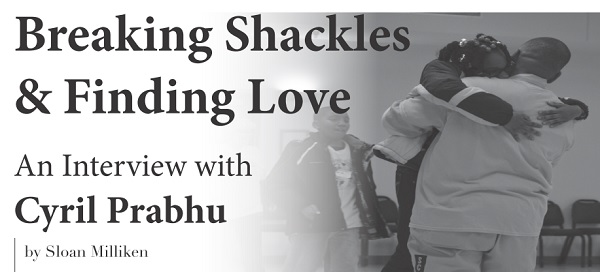
When I was in college, someone I respected encouraged me to believe for a divine appointment every time I sit next to someone on an airplane. I liked that advice, and putting it to practice over the years has led to many amazing conversations. One of those divine appointments was with Cyril Prabhu.
Cyril and I started talking toward the end of a flight we were on a little over a year ago. Immediately, I was impressed by his heart for the Lord and by the work he is doing through the prison ministry he founded, called Proverbs226. His ministry works both with the inmates and with the inmates’ families to support them throughout the incarceration. The statistics say that half to two-thirds of the 1.7 million children in America with an incarcerated parent will also spend time in prison themselves. That means approximately one million of today’s youth are expected to end up in prison. Cyril is out to change this metric.
While Proverbs226 volunteers and staff spend most of their time directly helping the children—the ministry pairs them with God-fearing mentors, help them flourish in their schooling, and promise to send them to college if they will do their part—they also do something much more important. They actively work to “turn the hearts of the fathers to the children, and the children to the fathers” (Malachi 4:6). Every year, they hold multiple events in participating prisons where the children can connect with their fathers and the fathers can spend the whole day with their children. They are also in the process of developing work programs so that the fathers can support the education of their children. The work they are doing has been so successful that it is beginning to spread grassroots-style from the Carolinas into different parts of the country.
Amazed at the work they are doing, and knowing Cyril’s heart for generational reconciliation, I asked Cyril to sit down with me one morning to share about the work of Proverbs226 and about the spirit of Elijah. I pray that God would use the portion of our conversation captured below to grip your heart with our heavenly Father’s love for you and encourage you to do your part to deepen your connection with those you love, both young and old.
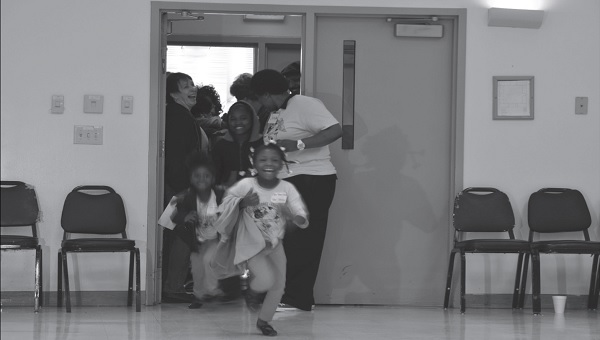
Cyril, you work closely with the incarcerated and their families. What goes on in a child’s heart when a father goes to prison?
There are about 2.4 million people in jail or prison in this country. 93 percent of those people are men, and 63 percent of those men are fathers. In their hearts, the children of those fathers are asking four questions. Without their dads at home, the first question the children ask is, “Where are you, Dad?”
When fathers go into prison, it changes the paradigm for their families because the fathers are taken out of the child’s life. Not only are they away in prison, but the fathers are often removed from their child’s lives even after they get out of the prison, due to the fact that the mothers are hurt or because she doesn’t want the father’s influence on their child. In some cases, the mothers are re-married and don’t want to be dragged into their past. Regardless of whether this is right or wrong, at the end of the day, we are raising a fatherless generation.
This creates a multitude of obvious and not-so-obvious problems. For example, I was talking with some people recently, and I raised the question, “Where are the inventors of this country?” Three generations ago, this country invented computers. Five generations ago, cars. Before that, electricity and telephones. You know what? Most of the inventions that have transformed the world into what it is today came from this country. But as I look at the next generation, I’m concerned because as a society we don’t have time to think about those things. The kids, and especially the kids of the incarcerated, don’t have time to think about those things. And incarceration has become a huge problem. That’s why even children’s shows like Sesame Street are talking about it. There was recently a boy introduced as a character in Sesame Street whose father is in prison. And they want to make sure other kids are aware of what incarceration means. Really? On Sesame Street? It has become a norm. How is this acceptable?
So the first question, “Where are you, Dad?” is asked because the kids don’t even know where their fathers live.
The second question that the kids ask is, “Are you safe, Dad?” On TV or in the movies, they only see these hardcore people with tattoos and orange jumpsuits behind bars, and these kids don’t know whether their daddy is safe.
Here we are talking about Millennial kids, we’re talking about kids of the next generation getting the spirit of Elijah. How will they receive this if the Elijah is missing?
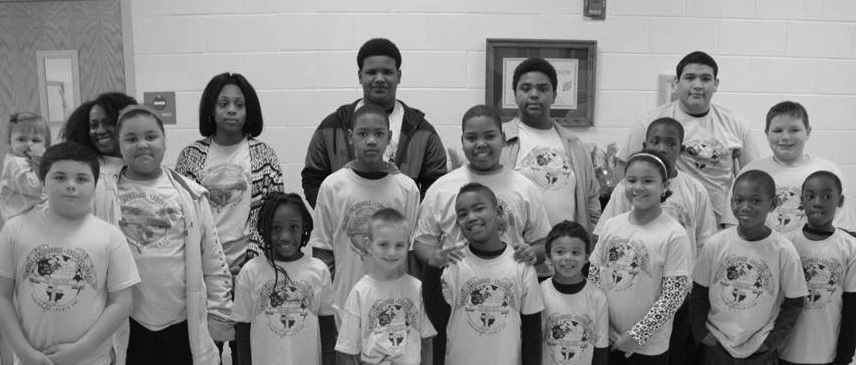
Hearing you say that reminds me of the other day when I was looking at the verse that says, God is “a father to the fatherless” (Psalm 68:5). That day I was particularly struck by the end of that verse, which says he is that father “in his holy dwelling.” As you were just talking about the spirit of Elijah, I realized that if God’s a father to the fatherless in the midst of his dwelling, and today we are his temple, that means that we’re going to have to be his hands and feet.
That’s the point. We have to be that Elijah.
This goes with the third question that the kids ask: “Did you ever love me, Daddy? Did you ever love me?” Many of the kids we start working with don’t even know what their fathers look like. Can you imagine? We will walk with them into a room in prison, and somebody’s going to say, “This is your father.” That’s how they are going to meet them for the first time. About a million kids don’t know the answer to the question, “Did you ever love me?” because their father was not there to tell them. Sloan, when these kids are asking those questions, how do we answer them?
The last question that the children ask is, “When are you coming home, Dad?” The children wait for it. The mom may have moved on with her life or moved on with another partner because she doesn’t want the hurt and pain of the former relationship. But what do these children do? They are the victims of the crime. They need the spirit of Elijah today. And that’s what we are trying to do.
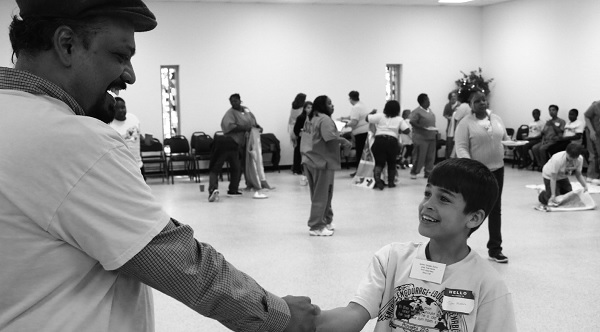
Cyril, how did you come to have a heart for this?
In my own life, as a boy in India, I grew up without a father. I never lived with my mother, either, because she would always leave me with somebody else so she could go and work in different places in hopes that favor would find me.
After I came over to the US as a young man, I asked my mom, “What was the one reason that was holding you to me? I had nothing to offer you. I was just a small baby in your hands.” What she said surprised me. She told me that the pressure of her life felt so heavy that several times she went to the Bay of Bengal and wanted to run into the water to die. But every time when the water touched her feet, she said she would remember that there is a boy out there who needed her, who would be an orphan if she didn’t stay back. Talk about the spirit of Elijah. It’s not just the fathers—it’s moms like that who make up the spirit of Elijah. Today, because of that experience, I’m able to save another child from going through similar experiences as I once did.
Cyril, what happened to your father? Did he pass away?
No, he got married to another woman after he left my mom and me when I was six months old. This left us destitute. As a child, though, I was funded by a husband and wife named Graham and Annie from North Wales, Australia. They sent thirty-five dollars every single month. Plus, my uncle Selvaraj gave me a place to stay, food to eat, and clothes. Those are the Elijahs in my life. Their aid helped me to an education, one that eventually allowed me to become a senior vice president at Bank of America. The generosity of these Elijahs in my life not only helped me grow stronger in this life but also fueled my desire to educationally support another child who is struggling just like me. (Proverbs226 promises to fully fund college for every child that completes the program.)
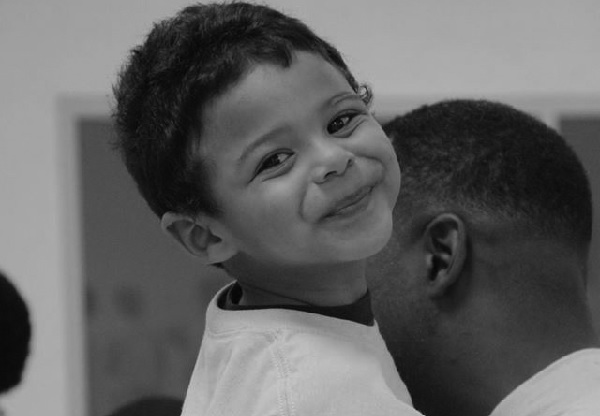
Please tell us some more about what Proverbs226 does. How are you practically creating opportunities for these children and their fathers to connect?
First of all, the prisons in South Carolina have allowed us to take the children inside the prison. We have been given favor to reconstruct the relationship between the children and their fathers and mothers who are serving time in the prison. Here’s one example of what happens when we do that. There was a guy who participated in our program who wrote a letter to me. He told me that in the past ten years, his son has visited him approximately seven times. Every time his son would come, he had to sit on the opposite side of a Plexiglas wall. He could not even touch his child. That is what a normal prison visit is like. We, however, do something quite different. We have been allowed to create an environment where the fathers and children can interact together in the same room. During our program this man got to hug his son for the first time in ten years—he said it brought tears of joy.
If the Elijahs cannot hug Elishas, how will we see the lives of these children changed?
Our very first event, the one this father wrote about, is called “Forgive Me Dear.” During that event, the fathers get a chance to wash the children’s feet, ask for forgiveness, and then put a new pair of shoes on their children’s feet.
One of the biggest issues right now in raising up these children in the way they should go is not about raising the money to send them to college. That’s the easiest part. It’s much harder to see these children open up room again in their hearts for their incarcerated parents. When these parents get on their knees and wash their children’s feet, something happens for that child—and the fathers, too. Many times, it changes the heart of the fathers, much more than the heart of the children. The first year we did the Forgive Me Dear program, we did it in one prison in South Carolina. Eighteen of the participating fathers were released from prison that year, and not even one of those fathers returned to the prison—all because these Elijahs have found their Elishas.
That’s amazing. What else do you all do?
The second thing that we do is we take school supplies into the prison toward the end of summer vacation. We turn the prison’s chapel area into a giant store, and we allow all the fathers to pack new backpacks for their children. Then, we ask them to let the children know about the backpack that they are sending. Last year, one of the fathers called home and told his 5-year-old daughter how happy he is to send her a red bag, with all the things that he hand-picked for her. But between the time he called and the time she went to pick it up, this father passed away inside the prison. This bag and the letter in it was the last piece of evidence of her father’s love.
Brother, what we are doing is so encouraging because it allows the children to see and feel the love of their fathers. At our events, we give many of these fathers a bright green t-shirt to wear over their prison jumpsuit, one that is identical to the one their children wear that day. What are we doing? Bringing the dignity back into the lives of these fathers. At the end of the day, these men give that shirt to their child. We have heard that many of these kids are using those t-shirts as their pillowcases and lay their heads on them each night. Sloan, we are not just touching the deepest part of their hearts, but applying the balm to heal them from the inside out.
During the later part of the year, we also have the children come into the prison to dance with their fathers. Many times we find that these children are getting pregnant at the age of twelve, thirteen, and fourteen, and that’s because these fathers don’t get a chance to tell their daughters how beautiful they look and how precious they are. When the daughters don’t know how much their fathers love them, somebody on the streets will use that line and get these girls pregnant. We want to reverse that so when a boy comes to one of our girls and says how much he loves her, she will have heard it so many times already from her daddy.
Realistically, what we are building in Proverbs226 is not just a way for the kids to go to college. We can absolutely do that, and there are many other organizations that can also do it. But we need to work to reconcile and rebuild that relationship that has been lost. Ultimately, that is what will help these kids get over the hump—not the money, nor the shoes.
My hope and prayer is this: the Bible says in Malachi 4:6, “I will turn the hearts of the fathers to their children, and the hearts of the children to their fathers, lest I come and strike this earth with a curse.” I believe that by bringing these children to their fathers and by creating a platform for these fathers to have a new beginning and new relationship built with their children, we are going to bring the spirit of Elijah back into this nation.
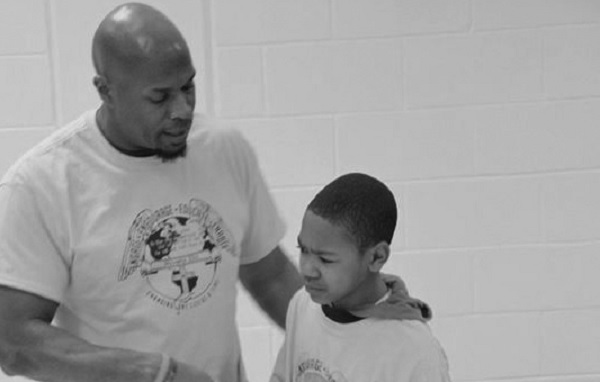
In light of what you’re sharing about your ministry, I have a couple of questions for you about society at large. As God’s people, what can we do to bring that same reconciliation into our own lives, into our own families, regardless of how good our family background is? Then, out of that, how can we bring this spirit of Elijah to the lost and dying world that lives outside the walls of a prison?
We cannot give what we don’t have. Ultimately, we cannot give somebody else this love if we don’t carry it ourselves and in our own families. In other words, how can we help heal the pain of a child who doesn’t have a father?
First and foremost, I believe we need to let God “restore the years the locust has chewed” (Joel 2:25). The more we live apart from the Lord, the more things that are going to be chewed from our lives. We need to go back in our own lives and look at all the things that we have lost, the things that the locust has chewed. That is the beginning of the wisdom that we need to cultivate. In the above passage, God is not talking about restoration but restitution. When he is talking about restoring the years the locust has eaten, he is saying that he will restore the years that are rightfully yours. We need to pray that God will restore the years that have been lost in our own lives and for many others. A lot of people in this world, including believers, are hurting and in pain because their fathers have abused them, their mothers were drug addicts, or just simply because they have never had a chance to experience the spirit of Elijah.
I love that scripture from Joel because, in context, it is clear that the locusts came because of society-wide, culture-wide, generational disobedience. In that promise, I think God is saying that when we humble ourselves and seek him, he will hear and restore what was taken, not just in our own lives, but also in our culture. So would you say that to see not only our own lives restored but also the society around us, we need to start with an inward journey?
Correct.
Secondly, our actions should match what we believe in the scriptures. 2 Chronicles 7:14 starts by saying, “If my people, who are called by my name, will humble themselves and pray and seek my face and turn from their wicked ways...” God is not talking about the world getting their act together, but instead his people to get their act together. It is very easy to portray ourselves as very pious, good, Bible-believing, church-going Christians in front of the people, but that is nothing but “Churchianity.” The real self is exposed only when nobody else is looking—that’s when it really matters.
A lot of times, when we have a relationship with God, he gives access to certain privileges, resources, blessings, and favor. Somehow, though, we can get used to those things and start to go after them and not a relationship with the Father. When that happens, the favor seems to disappear and we try to make processes and procedures around the creation rather than the creator. Unless we regroup ourselves before the Lord, have that relationship deeply restored, and walk with him, we are always going to be in a rat race and we won’t see the restoration that is promised.
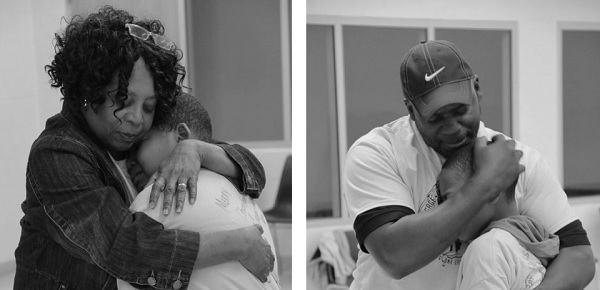
As we talk, I’m realizing that so often when we talk about what’s wrong with our culture or our own lives, our focus is horizontal. I am challenged and encouraged, though, that we need to start vertically. To quote my friend Joshua Hurley, “So often we preach Jesus as the way to heaven, but Jesus said he is the way to the Father.” I think that, before we can talk about walking in the spirit of Elijah or our hearts turning to each other, we need to let Jesus do what he said he came to do. We need to let him show us the Father.
Regardless of whether we had a good, godly father who was there for us, a dad who was totally absent, or a father who was somewhere in between, it seems to me we start to become the answer the world needs when we say, “Jesus, I’m going to trust you and let you show me who the Father is and what he’s really like.” Unless we have that encounter, unless we know who he is and let his love transform us, regardless of our age or lot in life there’s no way for the rest to be restored.
Yes, we need to have a swagger for Jesus restored. We have lost our passion for the Lord. In order to break the cycle, we need a paradigm shift. We need to break free from the “what’s in it for me” attitude in our culture—and it’s in our churches, too. We cannot expect a different result doing the same things. We got to the place we’re at right now by doing what we have done. In order for change to happen, we need to think differently. We need to once again think radically about who Jesus is. We have to have this intense passion for who he is. We’ve lost our swagger for Jesus, and ultimately, that is the reason for where we are at right now. I cannot imagine that we can fix all this by coming up with programs or holding the occasional five-day revival meetings.
Also, as a nation, we are struggling to forgive others— and ourselves. Recently, I was in a prison, and I was talking forgiveness. I said to these fathers inside the prison, “I’m going to ask you to ask for forgiveness from your children and ask for forgiveness from your wife, but have you forgiven yourself for what you have done?” After I finished sharing, I gave an altar call, and over 40 percent of the people in that room came to the front. As I was praying for the guys in that room, I realized that question I asked is not just for those inmates but it’s for all of us.
Forgiveness is such a key component that we have lost right now. In order see the Lord restore the years that the locusts have chewed and become restorers ourselves, we need not only to have God put his love in us, but allow that love to extend from us to forgive others. I’m guilty and need to grow here. That’s why I’m really scared to say the Lord’s Prayer right now. Why? Because it says, “Father, forgive us our sins as we forgive those who sin against us.” When we pray that, we’re saying, “God, use the benchmark that I’m using against so-and-so as the benchmark to forgive me.” I am scared of saying the Lord’s Prayer right now because in it we ask for God to forgive us in the very way we forgive others.
That fact makes me just want to lavish people with love and grace! This week, a friend of mine who recently asked to borrow some money totally stood me up on paying me back. I haven’t heard from him at all. I’ve been really disappointed that he has seemingly disappeared, and it’s mostly not about the money. Right now, though, I want to find him, give him five times the amount of money I originally let him borrow, and say, “I forgive you, and here’s a bunch more just to bless you!”
That is so true. It’s the reality that if we don’t get it ourselves, we’re not going to be able to give it away. If I don’t have forgiveness, how can I give it to somebody?
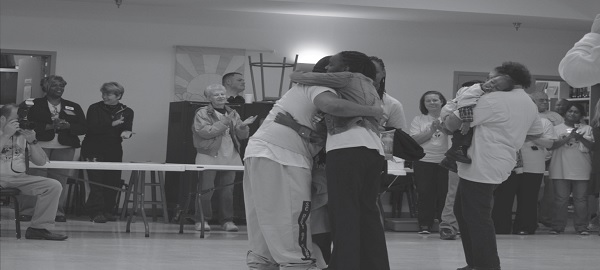
As we have been talking about fatherlessness, forgiveness, and reconciliation, I have been thinking about my generation, the Millennial generation. Very close to 50 percent of the kids being born to people in my generation are being born out of wedlock. These kids probably won’t get to live with their dads every day, and they may not even get to know their fathers at all. And this, in part, is the product of a society where half of Millennials’ parents have divorced. There are many different issues, and in different parts of life—in the marketplace, in the church, in politics—society is asking, “What are we going to do with these Millennials? We don’t understand them.”
It seems to me, though, that the real need is the same as in every generation—it’s the simple message of the cross that has reconciled us to our heavenly Father. It’s about understanding it for ourselves and then just letting Jesus live in us and extend him to others. There’s such need.
For many of these kids that we’ve talked about, like the 50 percent born out of wedlock, they are going to look for what is missing in their life from someone that they think can pour into them. Sometimes I look at certain celebrities, certain young women acting badly, and I think, “She’s craving a father’s love.” It breaks my heart that I cannot reach out to any of them because of their managers, publicists, and all those things. I’m thinking, though, “Seriously, these girls need a hug.” And we have a whole generation of boys and girls, young men and young women, like that.
You’re so right. We don’t realize that we are carrying the same ache and wound as those women, even while as a society, we judge them, point the finger, and basically laugh at them. Right now, I’m repenting for my attitude towards them—and all the people where I think, “What’s your problem?” Really, though, at the end of the day, when I’m not happy with my decisions, I’m asking myself the same thing: “What’s my problem?” Again and again, I find my answer ultimately comes down to needing to know more and more deeply that I have a Father who loves me.
And he cares, so much more than what we give him credit for. He cares so much and sends these humongous favors to us all the time. Even when we slip and fall and go to the pits, he sends a favor. That’s just the type of Dad he is. My prayer is that the Lord will put the Elijah’s mantle on every one of the readers. The spirit of Elijah is not lost—it is still real. We can be the modern day Elijahs that the Lord is looking for. Truly he wants to restore the years the locust has chewed.
For more information about Cyril Prabhu and Proverbs226 Ministries, please see their website www.proverbs226.org.
All photographs are provided by Cyril Prabhu and Proverbs226 Ministries.


 Sloan Milliken is learning to live as a son of his Father in heaven. He resides in Davidson, NC, where he owns a small house painting company. He enjoys playing music and rock climbing, and he puts his English degree to use by doing some editing on the side.
Sloan Milliken is learning to live as a son of his Father in heaven. He resides in Davidson, NC, where he owns a small house painting company. He enjoys playing music and rock climbing, and he puts his English degree to use by doing some editing on the side.